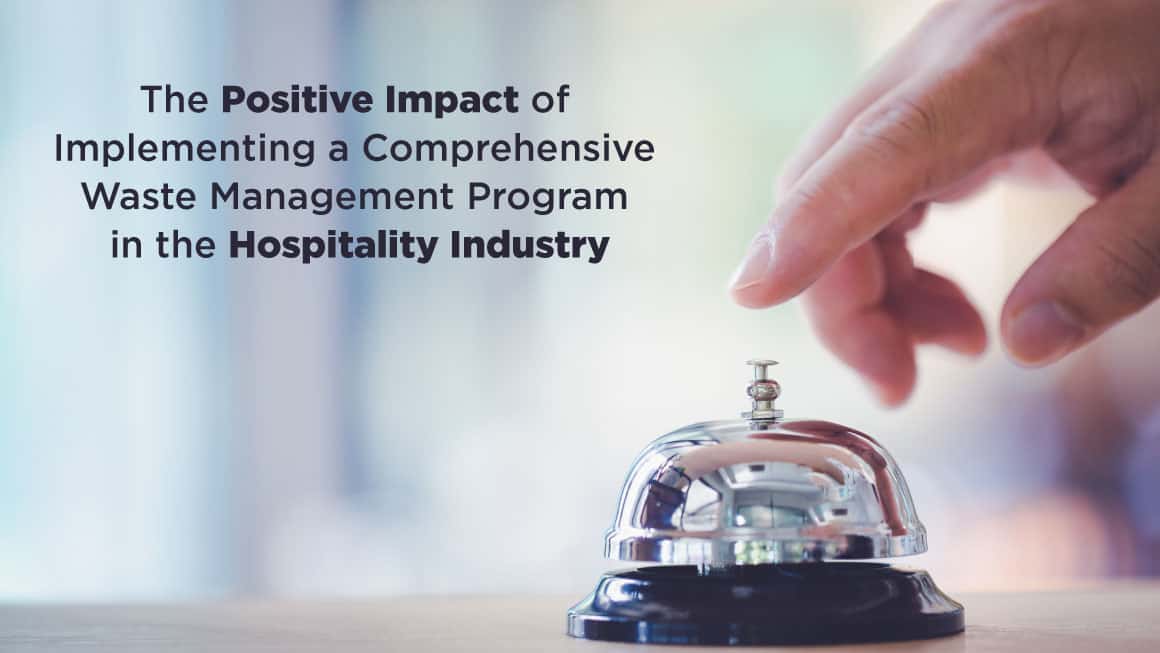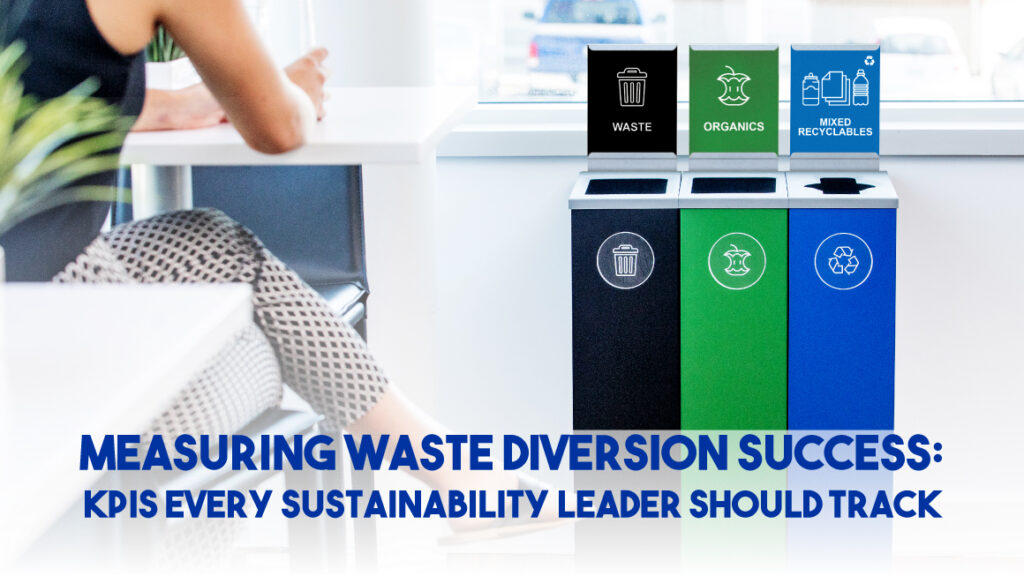s guest expectations evolve and sustainability becomes a cornerstone of modern hospitality, hotels and resorts must rise to the occasion. In a highly competitive industry striving for peak occupancy rates, sustainability initiatives offer a strategic advantage. Embracing effective waste management is not only environmentally responsible but also a smart business move, leading to improved guest satisfaction, cost savings, and enhanced community relations. While “going green” may not currently justify premium pricing, a well-executed sustainability program speaks volumes to discerning travelers and sets your property apart from the competition.
The Growing Demand for Sustainable Stays
A recent survey by Hilton, involving 72,000 guests, found that nearly one-third (33%) of respondents expressed a preference for hotels with environmental and social programs. Among younger travelers—those under 25—this figure jumps to 44%. A similar study by TripAdvisor revealed that 62% of U.S. travelers often or always consider the environment when making decisions about hotels, transportation, and dining options, with nearly 70% planning to make even more eco-friendly choices in the coming year. The implication is clear: sustainability is not just an amenity; it is becoming an expectation.
The Benefits of Implementing a Successful Waste Management Program
Establishing a comprehensive waste management program at your resort can yield positive results across three primary dimensions: economic, social, and environmental. Let’s take a closer look at how a well-structured program can transform your property.

1. Economic Impact: Reduced Costs and Higher Occupancy Rates
Investing in waste management is not just about saving the planet—it can significantly improve your bottom line. From minimizing waste hauling expenses to attracting eco-conscious guests, a robust program can have far-reaching economic benefits.
- Lower Waste Disposal Costs: Waste removal costs can be exorbitant, particularly in densely populated cities or remote locations. By diverting paper, plastics, and other recyclables from the waste stream, properties can cut their waste disposal bills by as much as 50%. For example, in New York City, a boutique hotel operator reduced an annual waste bill of $100,000 by $50,000 through recycling initiatives. Similarly, in Whistler, B.C., aggressive organic waste programs helped reduce tipping fees and overall waste management costs.
- Improved Guest Satisfaction and Occupancy Rates: A strong waste management program signals a commitment to sustainability, appealing to a growing segment of eco-conscious travelers. If guests are faced with a choice between a resort with a lackluster sustainability program and one with a well-developed strategy, they will more often choose the latter. Not only does this boost occupancy, but it also enhances the resort’s reputation and guest loyalty.
2. Social Impact: Building Community and Guest Engagement
The influence of a waste management program extends beyond financial gains; it shapes the way your resort interacts with its community and guests. A property that actively supports sustainable practices fosters a positive social environment, strengthens community ties, and builds a brand synonymous with responsible tourism.
- Community Health and Well-Being: Sustainable resorts help reduce landfill dependency, which directly contributes to improved air and water quality in the surrounding areas. This commitment to a healthier environment benefits local residents and the broader community.
- Strengthening Community Engagement: Properties that prioritize recycling and waste reduction often form partnerships with local organizations, supporting shared sustainability goals and initiatives. For instance, resorts that use recycled materials for building or renovation projects are more likely to integrate with communities that value eco-friendly practices.
- Job Creation and Economic Growth: Recycling and waste management programs are proven to generate more employment opportunities than traditional waste disposal. According to the Institute for Local Self-Reliance, industries engaged in sorting and processing recyclable material employ 10 times more people than landfill operations, contributing to local job growth and economic resilience.
3. Environmental Impact: Conserving Resources and Reducing Carbon Footprint
The environmental benefits of an effective waste management program are vast and undeniable. By reducing the amount of waste sent to landfills and increasing the recovery of reusable materials, your resort can make a meaningful contribution to global sustainability efforts.
- Lower Greenhouse Gas Emissions: Organic waste, when sent to landfills, emits methane—a greenhouse gas 21 times more potent than carbon dioxide. Implementing a comprehensive organics diversion program significantly reduces methane emissions, helping to mitigate climate change.
- Minimizing Toxic Leachate: When waste decomposes in a landfill, it produces a harmful by-product called leachate, which can seep into and contaminate local soil and groundwater. Diverting recyclable and organic materials prevents this environmental hazard, safeguarding local ecosystems.
- Nutrient-Rich Compost for Landscaping: Composting organic waste converts food scraps and other biodegradable material into nutrient-rich soil, which can be used to enhance the resort’s landscaping, reduce the need for chemical fertilizers, and improve soil health.
Setting a New Standard in Hospitality Sustainability
Waste management is more than a practical necessity—it is a visible manifestation of your resort’s commitment to sustainability. A comprehensive approach, encompassing recycling, composting, and waste reduction strategies, not only minimizes your property’s environmental footprint but also positions your resort as a leader in responsible hospitality. By implementing a strong waste management program, your resort can contribute to the global effort to combat climate change, reduce operational costs, and offer guests an experience that aligns with their values.
Ultimately, sustainability is a journey, not a destination. As more guests prioritize eco-friendly travel, implementing a thoughtful waste management program today will prepare your resort to meet the demands of tomorrow’s travelers—ensuring that your property thrives in an increasingly competitive and environmentally conscious market.
By embracing a greener future, your resort can build a legacy of sustainability that guests, staff, and the local community can take pride in.
If you have any questions specific to setting up your waste management program, contact us! We would be more than happy to help.
Key Takeaways (TL;DR)
- Guests increasingly expect sustainable operations: one survey found ~33% of hotel guests prefer properties with environmental/social programs (rising to ~44% among under-25s).
- A well-executed waste-management program can bring economic benefits:
- Lower disposal costs (e.g., diverting recyclables can cut waste bills by up to ~50%).
- Enhanced guest satisfaction and occupancy because eco-aware travelers prefer properties with visible sustainability initiatives.
- Significant social/community impacts also arise:
- Reducing landfill dependence improves local air/water quality.
- Recycling and waste-management programs generate more jobs than landfill operations (sorting/processing roles).
- Strengthening relationships with community and local organizations when sustainability becomes part of the brand.
- There are major environmental benefits:
- Diverting organics reduces methane (a greenhouse gas ~21× more potent than CO₂).
- Preventing leachate from landfills by using recycling/organics streams.
- Composting organic waste yields nutrient-rich soil for landscaping, reducing need for chemical fertilizers.
- Beyond the basics: implementing a comprehensive program (recycling + composting + waste-reduction + guest/staff engagement) positions a hotel/resort as a leader in sustainable hospitality and builds long-term resilience in a competitive market.
- Sustainability is framed as a journey, not a one-time action — early adopters gain operational advantages now and are better prepared for future guest expectations and regulatory/environmental pressure.



